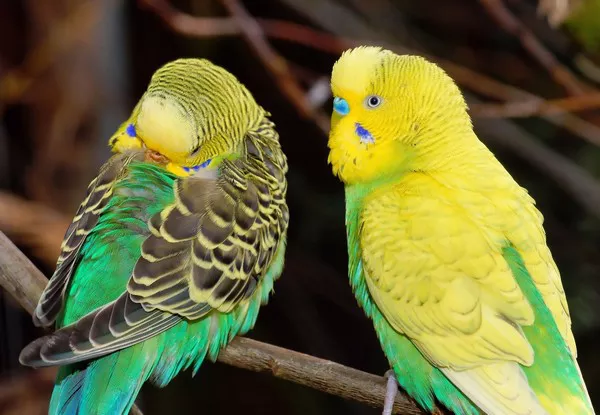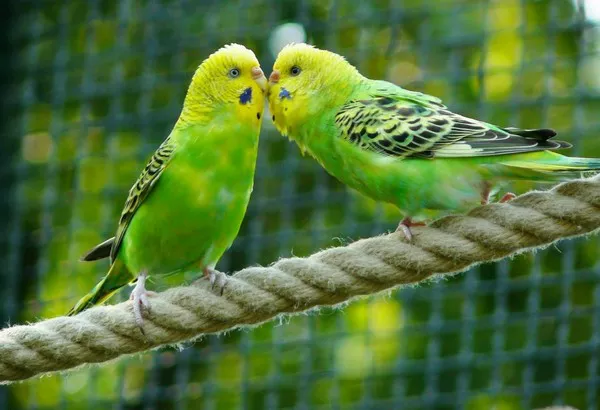Corn snakes are popular as pets due to their calm temperament, manageable size, and relatively easy care requirements. However, like all animals, they can experience stress, which can impact their health and behavior. This article explores the various factors that can cause stress in corn snakes, signs of stress, and effective methods to create a calm, comfortable environment for them. By understanding these aspects, you can help ensure that your corn snake lives a happy, stress-free life.
1. Understanding Corn Snake Behavior
Corn snakes (Pantherophis guttatus) are native to the southeastern United States and are commonly found in areas with dense foliage, forests, and even agricultural fields. In the wild, they are relatively shy, solitary creatures who spend most of their time hiding or seeking food. In captivity, this natural tendency means that they often prefer quiet, undisturbed environments.
Natural Temperament: Corn snakes are generally calm and docile compared to other snake species, making them ideal for beginner snake owners. They are also less likely to exhibit aggressive behavior. However, a relaxed temperament doesn’t mean they don’t experience stress—corn snakes can feel stressed for a variety of reasons, especially if their habitat or handling isn’t managed well.
2. Do Corn Snakes Get Stressed Easily?
While corn snakes are not particularly “high-strung,” they can become stressed if their needs aren’t met or if they are exposed to continuous disturbances. Like most reptiles, they thrive in consistent, predictable environments. Changes, especially sudden ones, can lead to stress. Whether or not a corn snake gets stressed easily depends on its individual temperament, environmental conditions, and handling practices. Generally, with proper care and habitat setup, stress in corn snakes can be minimized.
What Makes Corn Snakes Stressed? There are several common factors that can trigger stress in corn snakes:
Improper Handling: Frequent or rough handling can be a major stressor. While they are more tolerant than some other species, they still require gentle, minimal handling.
Inadequate Habitat Conditions: Incorrect temperature, humidity, lighting, or cage setup can make a corn snake uncomfortable and stressed.
Sudden Changes in the Environment: Sudden loud noises, movements, or a new pet in the house can make a corn snake feel threatened.
Health Issues: Physical discomfort from illness, injury, or parasites can also lead to stress.
3. Recognizing Signs of Stress in Corn Snakes
Identifying stress in a corn snake isn’t always easy, as they don’t exhibit stress in the same way mammals do. However, there are subtle behavioral cues to watch out for.
Common Signs of Stress:
Refusing Food: A stressed corn snake may stop eating. Consistently refusing food is a sign that something might be wrong.
Erratic Movements or Attempting to Escape: If your corn snake is constantly moving around, pushing against the enclosure walls, or trying to escape, it could be stressed by its environment.
Hiding Constantly or Being Overly Active: Corn snakes do enjoy hiding, but if they never come out, even during typical active hours, this might indicate stress.
Rapid Breathing or Puffing Up: When threatened, corn snakes may exhibit rapid breathing or even hiss. If this occurs frequently, they may be stressed by handling or other external factors.
Tail Rattling: While not as common as with rattlesnakes, corn snakes may shake their tails if they feel threatened. This behavior can be a sign of fear or stress.
Physical Signs of Stress:
Shedding Problems: Difficulty shedding, or dysecdysis, can indicate that a corn snake is stressed, often due to poor humidity levels or health issues.
Unexplained Weight Loss: Losing weight over time, without other dietary changes, could indicate chronic stress, which might be due to poor habitat conditions or underlying illness.
4. Causes of Stress in Corn Snakes and How to Address Them
Each potential stressor requires careful observation and response. Here are common causes and recommended solutions:
Inadequate Enclosure Conditions
Corn snakes require specific temperature and humidity ranges to stay comfortable. Improper lighting, temperature, or humidity can create stress.
Temperature: Corn snakes need a temperature gradient in their enclosure (with a warm side around 85°F and a cool side around 75°F). A lack of gradient can stress your snake as they cannot thermoregulate.
Solution: Use a heat mat or heat lamp to create a gradient, and use a thermostat to monitor temperatures accurately.
Humidity: Corn snakes prefer a humidity level of around 40-50%. Low humidity can cause shedding problems, while high humidity may encourage mold growth.
Solution: Place a hygrometer in the enclosure and adjust humidity as needed. You can mist the enclosure or provide a moist hide box to help.
Over-Handling
Some new owners are tempted to handle their snakes frequently. While corn snakes are generally docile, excessive handling can cause stress, especially in younger snakes.
Solution: Limit handling sessions to 10-15 minutes, a few times a week, especially for young or new snakes. Allow your snake to settle into its new environment for at least two weeks before handling regularly.
Lack of Hiding Spots
Corn snakes in the wild often hide under leaves, logs, and rocks. In captivity, they need a similar setup to feel secure.
Solution: Provide at least two hide boxes in the enclosure—one on the cool side and one on the warm side. Use hides that are dark and snug to help the snake feel safe.
Sudden Environmental Changes
Loud noises, a new pet, or changes in lighting can disrupt your snake’s sense of security.
Solution: Keep the enclosure in a low-traffic area and minimize loud noises or sudden movements around it. If you must make changes, try to introduce them gradually.
Health Problems
Illness or injury can also cause stress. Common health issues include respiratory infections, mites, and injuries from improper handling.
Solution: Regularly observe your corn snake for signs of illness, such as wheezing, mucus, or mites. If you suspect health issues, consult a reptile veterinarian immediately.
5. Reducing and Preventing Stress in Corn Snakes
Preventing stress in corn snakes involves maintaining a consistent routine and making their environment as close to their natural habitat as possible. Here are some additional tips:
Create a Consistent Feeding Schedule
Snakes are creatures of habit, and feeding them on a regular schedule can provide a sense of security. Corn snakes typically need to be fed once every 7–10 days.
Maintain Routine Tank Maintenance
Cleaning the enclosure regularly is essential for hygiene, but avoid cleaning too frequently, as this can disrupt your snake’s sense of territory. A deep clean every 4-6 weeks and spot-cleaning as needed is a good balance.
Minimize Handling During Shedding
Corn snakes tend to be more sensitive and less comfortable with handling while shedding. During this period, it’s best to leave them alone to prevent unnecessary stress.
Respect Their Need for Privacy
Corn snakes appreciate having a calm, private environment where they can hide and feel safe. Avoid placing the enclosure in areas with too much foot traffic or exposure to household pets.
6. How to Tell if Your Corn Snake Is Happy
While it’s hard to define “happiness” in reptiles, a healthy and stress-free corn snake will generally:
- Eat regularly and with interest
- Show normal, consistent activity patterns
- Exhibit healthy shedding cycles
- Be calm and non-defensive during handling (after being accustomed to it)
A snake that exhibits these behaviors is likely comfortable in its environment.
7. When to Seek Help
If your corn snake shows prolonged signs of stress, like refusing food for more than a couple of weeks, abnormal shedding, or signs of illness, it may be best to seek advice from a veterinarian who specializes in reptiles. Chronic stress can weaken a snake’s immune system, making it more susceptible to infections and other health issues.
Conclusion
Corn snakes are generally hardy and calm pets, but they can indeed experience stress if their needs aren’t met. From maintaining optimal enclosure conditions to minimizing handling and recognizing signs of stress, small steps can make a big difference in your corn snake’s overall well-being. By creating a stable, secure environment, you can help your corn snake feel safe and thrive in its captive habitat.
With proper care and attention, your corn snake can enjoy a long, healthy, and comfortable life with minimal stress.
Related Topics:

























